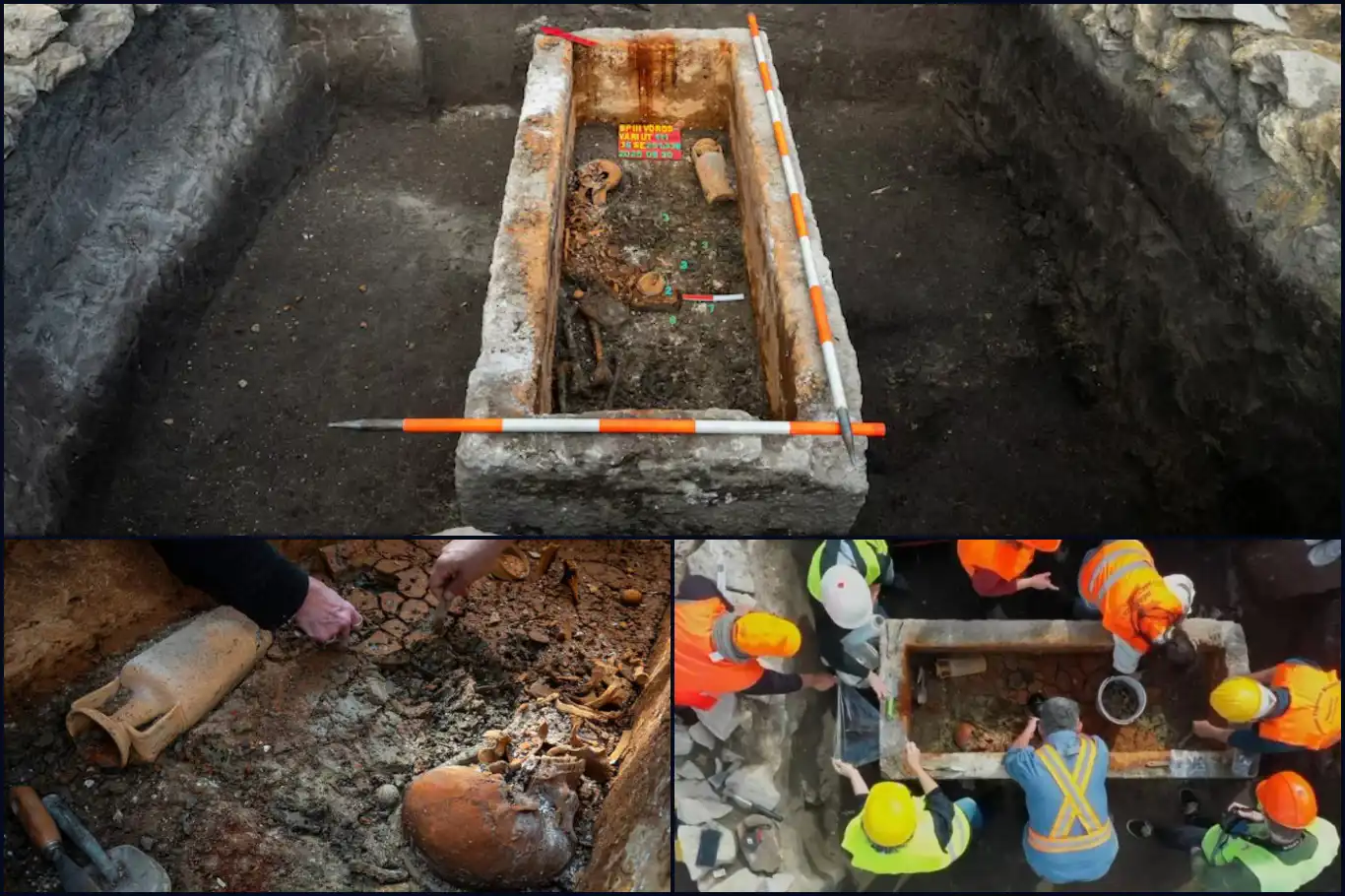Pristine 1,700-year-old Roman sarcophagus discovered in Budapest


Archaeologists in Hungary have uncovered an exceptionally well-preserved Roman sarcophagus in the capital’s Óbuda district, revealing a rare and intimate glimpse into the life of a young woman buried nearly 1,700 years ago during the height of the Roman Empire.
The Budapest History Museum’s excavation team found the limestone coffin sealed and completely untouched, its heavy stone lid still fixed in place with metal clamps and molten lead — an extraordinary level of preservation that protected the contents for centuries.
“When we opened the sarcophagus, we saw a complete skeleton and an array of accompanying objects,” said Gabriella Fényes, the lead archaeologist. “Its peculiarity lies in the fact that it was hermetically sealed and had never been disturbed. It was intact.”
A Unique Discovery in Ancient Aquincum
The sarcophagus was discovered in Óbuda, an area that once formed part of Aquincum, a major Roman settlement and military center along the Danube frontier. The coffin lay among the remains of abandoned houses in a quarter vacated during the 3rd century, later transformed into a cemetery.
While archaeologists uncovered eight additional graves in the vicinity — along with remnants of a Roman aqueduct — none matched the richness, condition, or significance of the sealed sarcophagus.
Artifacts Provide Insight Into the Woman’s Life
Inside the coffin, researchers found not only the well-preserved skeleton but also dozens of artifacts, offering valuable clues about the identity, status, and daily life of the young woman interred there. The exact items have not yet been publicly detailed, but specialists say the grave goods reflect a person of considerable social standing.
A Window Into Roman Hungary
The discovery is being hailed as one of the most important archaeological finds in Budapest in recent years. Untouched burials from the Roman era are extremely rare, providing archaeologists with a unique opportunity to analyze clothing remnants, personal belongings, burial customs, and even biological traces that typically vanish when tombs are looted or exposed.
Further examination and conservation work are underway, and researchers say the sarcophagus could help deepen understanding of Roman life in Aquincum — a vibrant urban center that connected the empire’s frontier legions with civilian settlements along the Danube.
Officials say a detailed report will be released after laboratory analyses of the bones and grave goods are completed. (ILKHA)
LEGAL WARNING: All rights of the published news, photos and videos are reserved by İlke Haber Ajansı Basın Yayın San. Trade A.Ş. Under no circumstances can all or part of the news, photos and videos be used without a written contract or subscription.
The Orphans Foundation (Yetimler Vakfı) continues to advance its vital humanitarian initiative, “A Table Every Day,” ensuring that families in Gaza enduring severe deprivation receive daily nourishment.
The Orphans Foundation (Yetimler Vakfı) continues to advance its vital humanitarian initiative, “A Table Every Day,” ensuring that families in Gaza enduring severe deprivation receive daily nourishment.
Senior officials of the Islamic Emirate of Afghanistan converged at a key meeting this week, issuing a resounding call for national unity and strongly condemning the consistent Western efforts to undermine Afghanistan's Islamic governance.
The United Nations Relief and Works Agency for Palestine Refugees (UNRWA) has issued a stark warning about the catastrophic humanitarian situation in the Gaza Strip, stating that more than 90% of the population now depends entirely on aid, with many receiving only one meal every 24 hours.